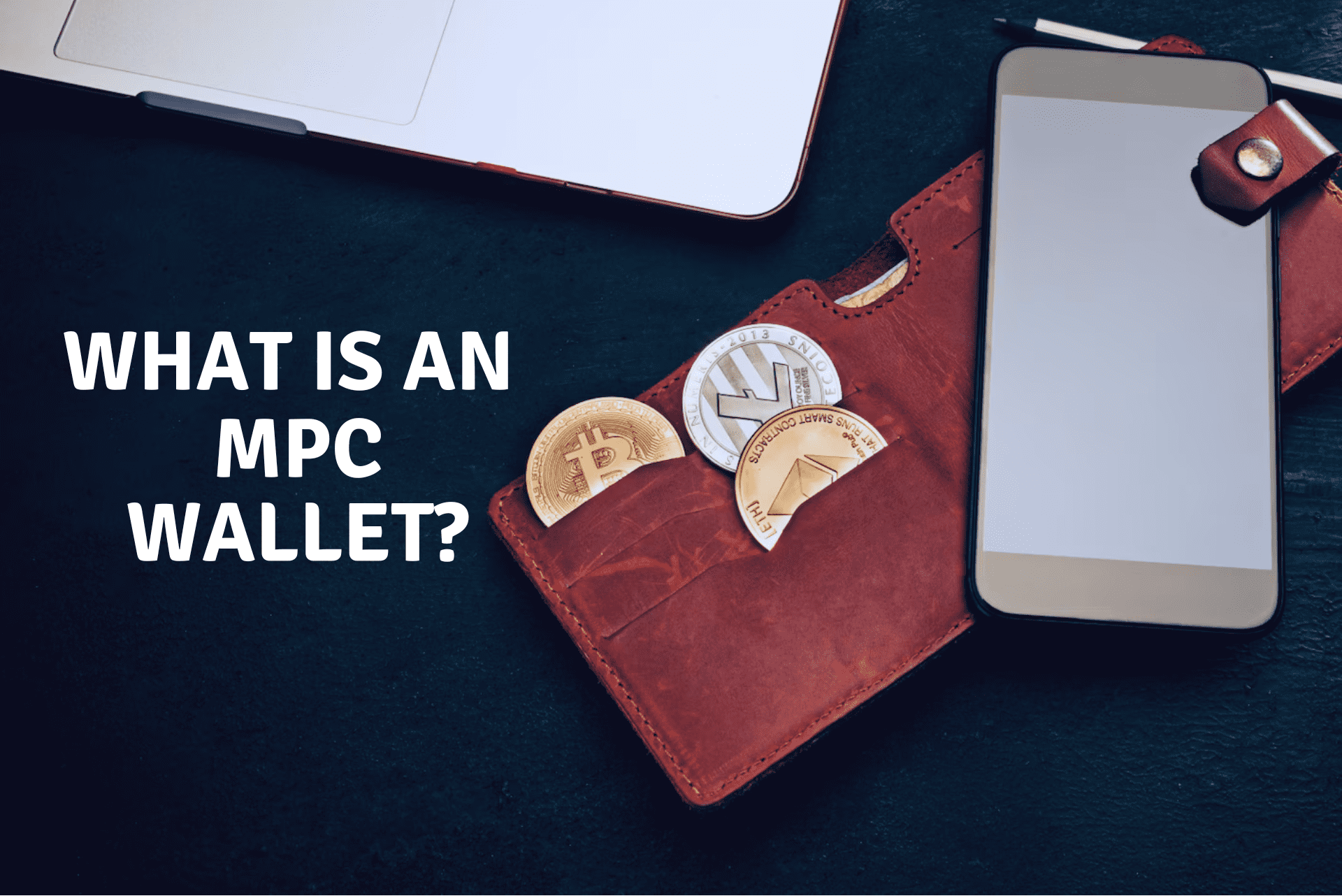What Is An MPC Wallet?
In the fast-paced world of cryptocurrency, where fortunes can be made or lost in an instant, one thing remains constant: the paramount importance of wallet security.
Imagine having your hard-earned digital assets vanish into thin air due to a single security breach.
The need for a robust and secure wallet solution cannot be overstated.
In this article, we will delve into the intricacies of MPC wallets, exploring their definition, benefits, functionality, and how they compare to other wallet types.
By the end, you will have a comprehensive understanding of MPC wallets and their role in securing your digital wealth.
Understanding Wallets in Cryptocurrency
Before diving into the specifics of MPC wallets, it’s important to grasp the concept of cryptocurrency wallets themselves.
Cryptocurrency wallets act as virtual vaults, holding the keys to access your digital wealth. They serve as the gatekeepers to your funds, ensuring that only authorized individuals can initiate transactions.
With the decentralized nature of cryptocurrencies, the responsibility of securing these assets falls squarely on the users’ shoulders.
Wallet security is crucial to safeguard against these threats. A compromised wallet can lead to irreversible losses, financial ruin, and the erosion of trust in the cryptocurrency ecosystem.
There are various types of wallets, including software, hardware, and paper wallets.
However, MPC wallets offer a new level of security and control.

Exploring MPC Wallets
In recent years, Multi-Party Computation (MPC) has emerged as a game-changing solution in the world of cryptocurrency security. MPC wallets utilize this innovative technology to provide enhanced protection for your digital assets.
But what exactly is MPC?
In simple terms, MPC involves a collaborative approach to key management and transaction signing.
Instead of relying on a single private key, MPC distributes the key generation and signing processes among multiple participants.
This distributed nature ensures that no single participant has full access to the private key, significantly reducing the risk of theft or unauthorized access.
How MPC Wallets Work
In the context of wallets, MPC involves distributing the key generation and signing process among multiple parties, ensuring that no single participant has complete access to the private key.
To truly understand how MPC wallets work, it’s important to grasp the underlying principles of MPC.

Explanation of the underlying principles of MPC:
- Secure multiparty computation: MPC relies on the principle of secure multipart computation, where multiple participants jointly compute a function without revealing their inputs. This cryptographic technique ensures that no participant has complete knowledge of the private key while allowing them to collectively generate and use it for transactions.
- Threshold cryptography: Threshold cryptography is a key concept in MPC. It divides the private key into multiple shares, with each participant holding a share. A predefined threshold is set, requiring a minimum number of participants to collaborate to perform key operations. This ensures that no individual participant can access the private key on their own.
List of 8 top MPC wallets
Various MPC wallet providers are available for users and developers, each offering distinct characteristics. Some of the most well-known options are:
- Coinbase
- HyperBC
- Fireblocks
- Mirror World
- UniPass
- Marble Wallet
- Portal
- MPCVault
Selecting an MPC wallet is contingent upon your individual needs and preferences, as each wallet possesses its advantages and features. Exploring the various alternatives and comparing their functionalities is a good way to identify the wallet that best aligns with your objectives and needs.
How MPC enhances security:
Multi-Party Computation (MPC) technology revolutionizes wallet security by distributing the key generation and signing process.
Here’s how MPC enhances security:
- Eliminating Single Points of Failure: MPC wallets divide the key into shares held by different participants, eliminating the risk of a single device compromise or key theft compromising the entire private key.
- Shielding Against Attacks: MPC ensures that no individual participant possesses the complete private key, adding an extra layer of protection against attacks. Cryptographic protocols enable secure transactions without fully revealing the key to any single participant.
- Strengthening Resilience: MPC-wallets employ advanced cryptographic techniques, protecting against vulnerabilities and reducing the risk of human error compromising security.
- Trustless Security: MPC operates on a trustless model, allowing self-custody of funds without relying on centralized authorities. You maintain full control over your private key shares, ensuring complete ownership and control of your digital wealth.
Benefits of using an MPC wallet for enhanced security:
The benefits of using an MPC wallet are numerous. Here are a few major ones:
- Protection against single points of failure: Unlike traditional wallets that rely on a single private key or multi-signature schemes, MPC wallets distribute the key across multiple participants. This ensures that even if one participant is compromised, the overall security of the wallet remains intact. HyperBC, a renowned Web3 MPC-wallet, is a great example that works on this principle.
- Increased resilience against attacks: MPC wallets leverage cryptographic protocols and advanced mathematical techniques to protect against various attack vectors. By combining the inputs from multiple participants in a secure and decentralized manner, MPC wallets provide robust protection against key theft, phishing attempts, and other malicious activities.
- Trustless key management: MPC wallets eliminate the need for users to rely on a single trusted entity. With the collaborative nature of MPC, users can participate in the key generation and signing process, maintaining control and ensuring the security of their funds without the need to trust a central authority.
Compatibility with various cryptocurrencies and decentralized applications:
Multi-currency support
MPC wallets are often compatible with a wide range of cryptocurrencies, allowing users to securely store and manage different digital assets within a single wallet interface.

Interoperability with decentralized applications (dApps)
Many MPC wallets are designed to work seamlessly with decentralized applications. Users can securely interact with dApps, such as decentralized exchanges or lending platforms, using their wallets for authentication and transaction signing.

By offering enhanced security, privacy features, flexibility, and compatibility, MPC wallets provide a robust and versatile solution for managing cryptocurrencies in a secure and user-centric manner.
Common Concerns and FAQs
In this section, we will address common concerns and frequently asked questions about MPC wallets:
Q: How do I recover an MPC wallet and handle the potential loss of shares?
A: Recovering an MPC wallet typically involves backup mechanisms such as mnemonic seeds or backup phrases. These can be used to restore the wallet in case of device loss or failure.
In the event of lost shares, most MPC wallets offer methods to regenerate or redistribute the shares, ensuring that the wallet remains functional even if a participant’s share is lost or inaccessible.
Q: What is the role of the user in the MPC process?
A: Users play an active role in the MPC process by generating their share of the private key. This active participation ensures that users maintain control over their funds and eliminates the need to trust a single entity with the entire key.
Securely managing their shares, including safeguarding backup phrases and following best practices for wallet security, is crucial for users.
Q: Are there potential vulnerabilities in MPC wallets, and how are they mitigated?
A: While MPC wallets offer robust security, it’s essential to address potential vulnerabilities. Selecting reputable and reliable participants is crucial to ensure the trustworthiness of the MPC process.
Additionally, secure implementation of cryptographic protocols and continuous monitoring and updates are essential to address any emerging threats.
Conclusion
MPC wallets represent a significant advancement in securing digital assets within the cryptocurrency space. By leveraging Multi-Party Computation, these wallets offer enhanced security, privacy, and control.
As the value of cryptocurrencies continues to grow, adopting secure wallet solutions like MPC wallets becomes increasingly crucial.
By choosing an MPC wallet, users can enjoy the benefits of robust security and peace of mind.
Embrace the future of cryptocurrency storage with MPC wallets and take control of your digital wealth.







